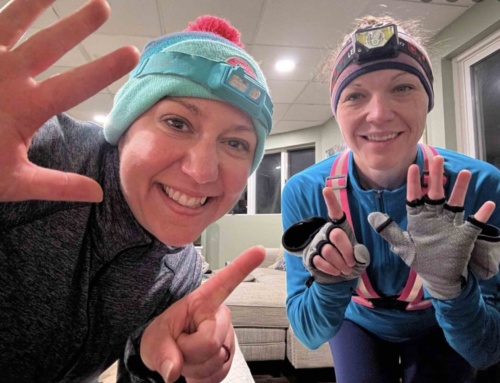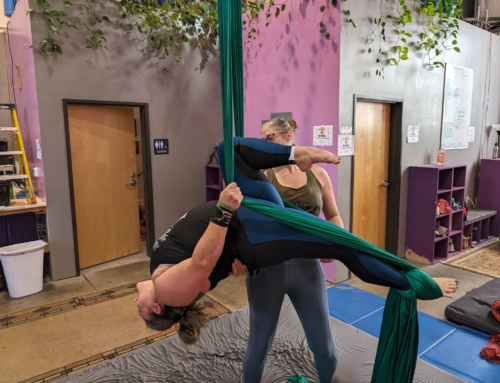
by Amanda Ryan Fear
Running is often our escape from the demands of everyday life, our chance for a little peace and quiet amid the chaos. If you’re like me though, it’s anything but quiet inside your head on a run.
You know the importance of training your body, including your heart, lungs, and muscles for peak performance, but did you know you also need to train your brain?
Your brain is designed to keep you alive, not to help you get an optimal time on your next half marathon, so those thoughts you’re having like “I’m not going to make it,” or “I can’t run one more step” aren’t the truth—they’re just your brain doing its job. Your brain would love it if you never stepped out of your comfort zone because, so far, your comfort zone hasn’t killed you. Anything else is suspect. However, staying in your comfort zone isn’t going to help you achieve your goals.
Here are 7 ways to start training your brain for peak performance (and to make running more enjoyable!).
- Be on to your brain. Your brain is an unreliable narrator, meaning it can be really dramatic. Just because you think you’re going to die at a 10-minute mile doesn’t mean that you actually are (see #2).
- Separate out the facts of your run from the stories you’re telling yourself. Facts are irrefutable data, like your heart rate, how much water you’ve had, how long you’ve been running, etc. Stories, however, are all of the things you’re thinking about those facts like “I can’t do it,” “I should just give up,” “this pace is too hard,” etc. (see #1).
- Know that none of your thoughts are true. A thought is just a sentence in your head—it only feels true because you’ve thought it before. Eighty percent of the thoughts you have today are the same thoughts you had yesterday, so when you tell yourself you’ll never be able to run a marathon, it feels really true. Not because of facts, but because you’ve thought it so many times. None of our thoughts are the absolute truth, they’re merely thoughts. Challenge your beliefs by coming up with just one piece of evidence to the contrary of what you’re thinking. For this example, what is one tiny reason that you could run a marathon someday? Start with that and continue to build evidence.
- Get out of your mental soundtrack. Distract yourself from whatever thoughts are in your head. Notice five things that are blue around you. Think of what is going really well in that moment, or pay attention to how the air feels on your skin—whatever you can do to get yourself out of your thoughts and into the present moment.
- Give your brain a new soundtrack. It helps to come up with a running mantra ahead of time. “This is not the hardest thing I’ve ever done” is one of mine. “I’m stronger with every step.” is one I like, too. Come up with something believable (“I run a 6-minute mile with ease” is not your mantra if it’s not true) and empowering that will be easy for you to remember when the going gets tough.
- Set your goals ahead of time, then stick with them, no matter how much whining happens in your head. If you told yourself you’re going for a 6-mile run, make it non-negotiable once you leave the front door. Your brain can have a pity-party, or it can get on board. If you notice the day before you’re not feeling well, for example, alter your plans then. The time for changing up your plans is not when you’re four miles in.
- Anticipate race day anxiety. Don’t make race day anxiety a problem—an emotion only lasts in our bodies for about 90 seconds. Yet if we keep telling ourselves the same stories, we keep creating the anxiety. Anxiety and excitement are basically the same emotion labeled differently. Focus on what you’re excited about in the upcoming race.

Amanda putting her own advice to work during a recent half marathon
Amanda is a leadership coach for women who are ready to stop feeling overwhelmed, unfulfilled, and anxious. She helps women train their brains so that they can accomplish their big dreams with confidence and clarity. A previous podcast guest, Amanda is a mother runner, equestrian, surfer, and former rower and knows a thing or two about sports and competition mindset.






Leave A Comment
You must be logged in to post a comment.